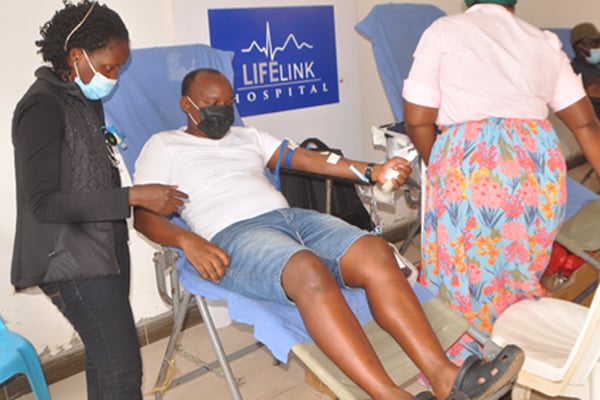Prime
Health cover fastest growing class of insurance, says IRA

Access to healthcare remains highly expensive and out of reach for many Ugandans. Photo | stephen otage
What you need to know:
According to Insurance Regulatory Authority, life premiums grew by 35 percent in the 2022 first quarter compared to 6.6 percent for non-life and declines for other segments
Insurance Regulatory Authority (IRA) has said health insurance is currently the fastest growing class of insurance in Uganda.
In details published by IRA, Mr Ibrahim Kaddunabbi Lubega, the IRA chief executive officer, said health insurance has over the years gained appeal for most corporate organizations as a strong bargaining tool for employers.
However, he noted, the uptake remains low standing at less than 1 percent, which is reflected in the general insurance penetration that currently stands at 0.82 percent.
According to data from IRA, life gross premiums grew by 35 percent in the 2022 first quarter, which was higher than any other class of insurance.
For instance, during the period, non-life insurance grew by 6.6 percent while other segments registered declines.
However, non-life insurance had the largest share of premiums, contributing 60.99 percent of gross written premiums compared to 29.54 percent for life insurance.
Health membership organizations and microinsurance contributed 3.61 percent and 0.03 percent, respectively.
Mr Kaddunabbi also noted that because access to quality health care remains a big challenge for many Ugandans, especially in rural areas and the urban poor, it is important that Ugandans support the National Health Insurance Scheme, which seeks to protect Ugandans from unexpected and high medical costs by giving them an opportunity to pay affordable premiums and get treatment when they need it.
“Many Ugandans are struggling with high out-of-pocket health expenditures, which have forced some people to sell their properties to pay for healthcare … which has contributed greatly to keeping people in poverty. There are also instances where some people have lost lives because they cannot afford the huge out-of-pocket healthcare bill. The National Health Insurance Scheme is thus a health financing system designed to pool funds to provide access to quality health services for all Ugandans,” he said.
In 2021, Parliament passed the National Health Insurance Scheme Bill, but President Museveni sent it back to the House for improvements.
In May, Dr Sarah Byakika, the Ministry of Health commissioner, planning, finance and policy, said they were in the process of engaging stakeholders on the way forward, after which the amendments would be sent to Cabinet before tabling them before Parliament. The National Health Insurance Scheme has been challenged by a number of stakeholders, noting that it places another burden on a limited number of people, many of which are already facing a number of statutory obligations, among which include taxes and other contributory obligations.
A section of the public has also indicated that it will further burden employers with new charges on top of existing ones.
The Bill had required employers to contribute 4 percent for every employee while employees would contribute 1 percent of gross earnings.
However, Dr Byakika said in May that this had been adjusted with the amendments now requiring employers to contribute 1 percent while employees would contribute 4 percent.
Membership
According to Mr Kaddunabbi, it has been proposed that membership to the National Health Insurance Scheme will be mandatory for every Ugandan and premiums shall be made directly or indirectly, which will boost insurance coverage.




